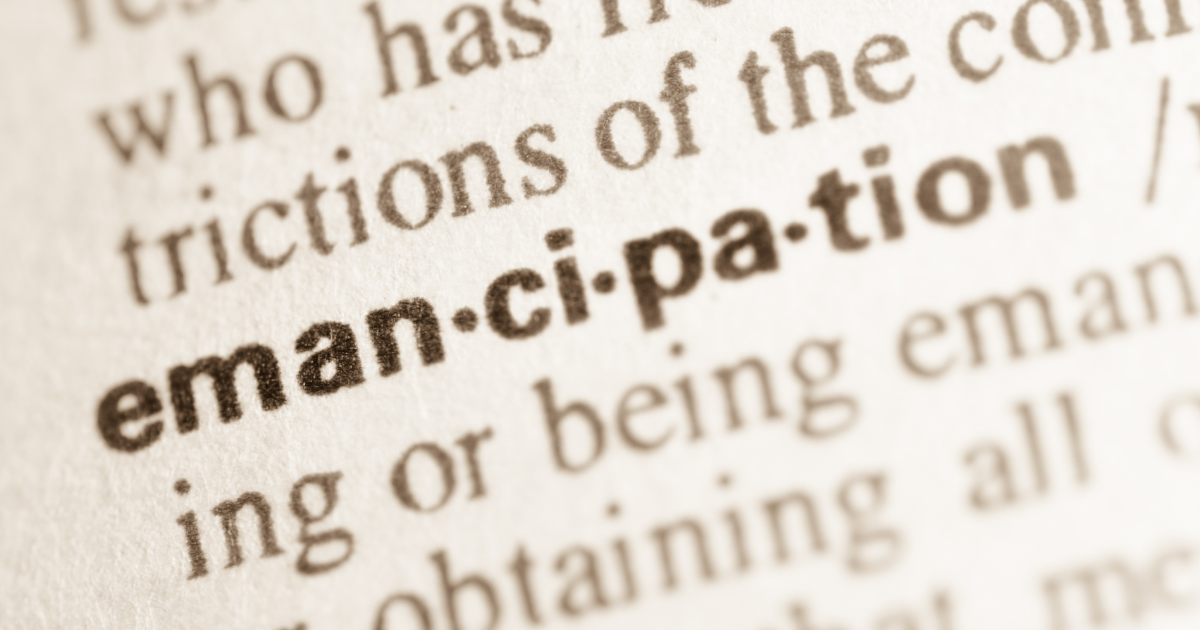Is it Possible to Be Emancipated From Only One Parent?

Many minors are unsure of whether they can be emancipated from one parent and not the other. Knowing more about emancipation in NJ is essential if you are thinking about getting emancipated from one of your parents.
You can be emancipated by presenting the court with a strong case of why emancipation is necessary. To determine whether this is possible in your case, a lawyer must first review all of the facts.
Emancipation in New Jersey
New Jersey does not have specific laws on emancipation of a minor. Rather, New Jersey laws have a set of guidelines for the process of emancipating a minor from one parent or both parents. A child may be emancipated before they come of age for these reasons:
- Marriage or civil union
- Have become pregnant
- Entering military service
- Are 16 and can support themselves financially while living alone
Upon emancipation, you can make adult decisions without your parents’ consent, such as choosing to undergo medical or surgical procedures or paying your student loans for higher education. However, you are not allowed to vote and drink alcohol in the state of New Jersey as an emancipated minor.
Emancipation from One Parent
If you want to get emancipated from one parent, you still need to prove you can support yourself financially and have independent resources for your current living situation. The minimum age for emancipation is 16 under New Jersey law, but emancipation is only granted to minors who can demonstrate they can live and work independently outside of the sphere of their parents’ influence.
As part of emancipation proceedings, the court will assess whether you are financially independent, can live on your own, and whether the parents agree to the emancipation. The court may also consider what the family thinks are reasonable expectations of you if you were to live and work independently.
As an emancipated minor, you need to be able to support yourself without your parents’ help. Your income should indicate you can afford groceries, transportation, and a cellphone. The judge may also take into consideration other circumstances, such as your educational plans, safety, and wellbeing, in the case of emancipation. If you do not meet those criteria, the judge may reconsider your emancipation.
What if Your Parent Receives Child Support Payments?
If your parents are divorced, and you live with one parent, the other parent (payor) may be providing child support payments.
Child support usually ends on your 19th birthday, but your parents may have a separation agreement that details your child support payments, affecting this duration. Child support payments may continue if you are still in high school, a full-time college or vocational student, have a disability, or due to a court order.
If you no longer live at home with your parent and are not in school with no plans to attend college, then the payor can make a motion to declare you emancipated and end child support payments.
Upon the successful emancipation of a minor, regardless of their age, child support payments end.
Work With an Experienced NJ Emancipation Lawyer
Since each emancipation case in the state of New Jersey must be looked at in its own right, it is always best to consult an emancipation attorney to discuss the facts and circumstances of your situation. Several factors are involved in emancipating a minor, including whether the individual has been able to find their own housing and can make mature decisions independently.
The process of emancipation in New Jersey may seem complex to figure out on your own if you intend to be emancipated from one parent. If you have questions about child support and emancipation, the knowledgeable attorneys at Lyons and Associates, P.C. can help you. Contact us today to schedule a consultation.


